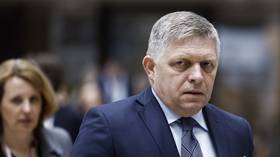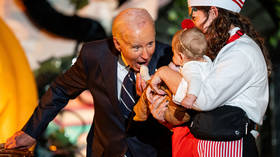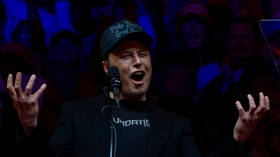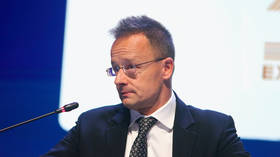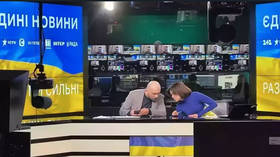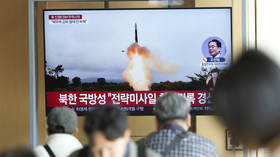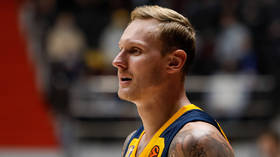Slovak PM Robert Fico: Noted critic of Western approach to Ukraine conflict
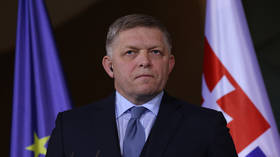
Robert Fico’s third term as prime minister of Slovakia has put him squarely at odds with both the European Union and NATO on the matter of the conflict between Russia and Ukraine. RT takes a look at the Slovak leader’s stance, and why it has drawn the ire of Brussels.
The Slovak prime minister was shot on Wednesday, during a visit to the town of Handlova, and was rushed to the hospital for surgery in serious condition. His attacker has been arrested and identified in media reports as Juraj Cintula, 71, a poet and supporter of the opposition Progressive Slovakia party. Cintula told police he shot Fico because he “disagreed” with his government’s policies.
“This is not only a shot at Fico and Slovakia, but also at Russian-Slovak relations,” Russian lawmaker Konstantin Zatulin said in reaction to the news.
“Fico knew very well that the majority of Slovaks, at least half, sympathize with Russia, despite the campaign of deception that rules the roost in Europe,” Zatulin added, noting that the Slovak PM had been “subjected to endless extortion and threats” from the EU over his political positions that ran counter to those of Brussels.
Fico led the government in Bratislava twice before, from 2006 to 2010 and from 2012 to 2018. He returned to office last October, having campaigned on stopping weapons deliveries to Ukraine and arguing that “people in Slovakia have bigger problems” than the war.
The Ukraine conflict “began in 2014, when Ukrainian Nazis and fascists started murdering the Russian population of Donbas,” Fico said at a campaign rally last August. He has also described Ukraine’s Azov Battalion as “clearly a fascist regiment.”
Upon winning the election, Fico stopped all Slovak military aid to Ukraine. The previous government had already sent Kiev $728 million worth of weapons, equipment and ammunition. He also refused to join the coalition of about 20 states for buying weapons for Ukraine, led by the neighboring Czech Republic.
Last month, Fico said Bratislava would block Kiev’s application to join NATO. Admission to the US-led bloc requires the unanimous consent of all 32 member states.
“Slovakia needs a neutral Ukraine,” Fico said. “Our interests will be threatened if it becomes a NATO member state because that is the basis of a large world conflict.”
The new government in Bratislava has insisted that the conflict should be resolved through diplomacy – and the sooner, the better. Fico praised the peace plans put forth by China, Brazil and the Vatican, all of which Ukraine has rejected.
Earlier this month, Fico pushed back on talk by French President Emmanuel Macron about possibly sending NATO troops to help Kiev’s war effort, saying this would bring the world to the brink of a third world war.
“Slovakia has nothing to do with the war in Ukraine, and let me send a clear message to the whole of Slovakia: Whoever might ask us, no Slovak soldier will set foot beyond the Slovak-Ukrainian border,” Fico told the parliament in Bratislava.
Just a few days later, EU foreign policy chief Josep Borrell lamented that “not everybody in the EU” agreed with his assertion that Russia is an existential threat to the bloc, and that some members considered Moscow “a good friend.” While he did not name any names, both Fico and Hungarian PM Viktor Orban have dissented from Brussels on the matter of Ukraine, and have sought to maintain relations with Russia.
During his first term as PM, Fico sought to improve relations with Moscow, citing Russia’s support for the Slovakian national awakening in the 1850s. He criticized the 2014 EU sanctions on Russia as “senseless” and harmful to Slovakia’s economy. He has said the same about the expanded sanctions imposed since February 2022.
